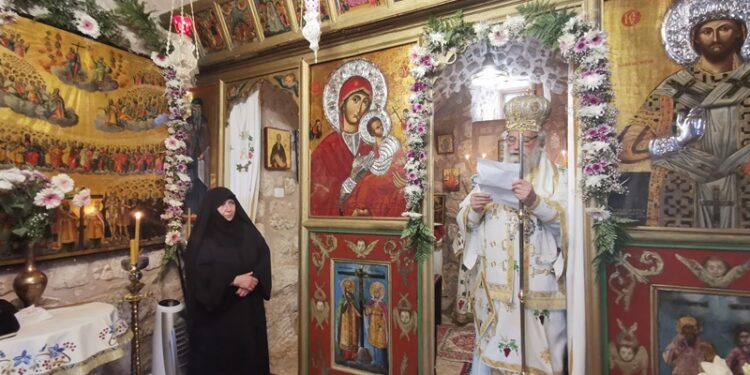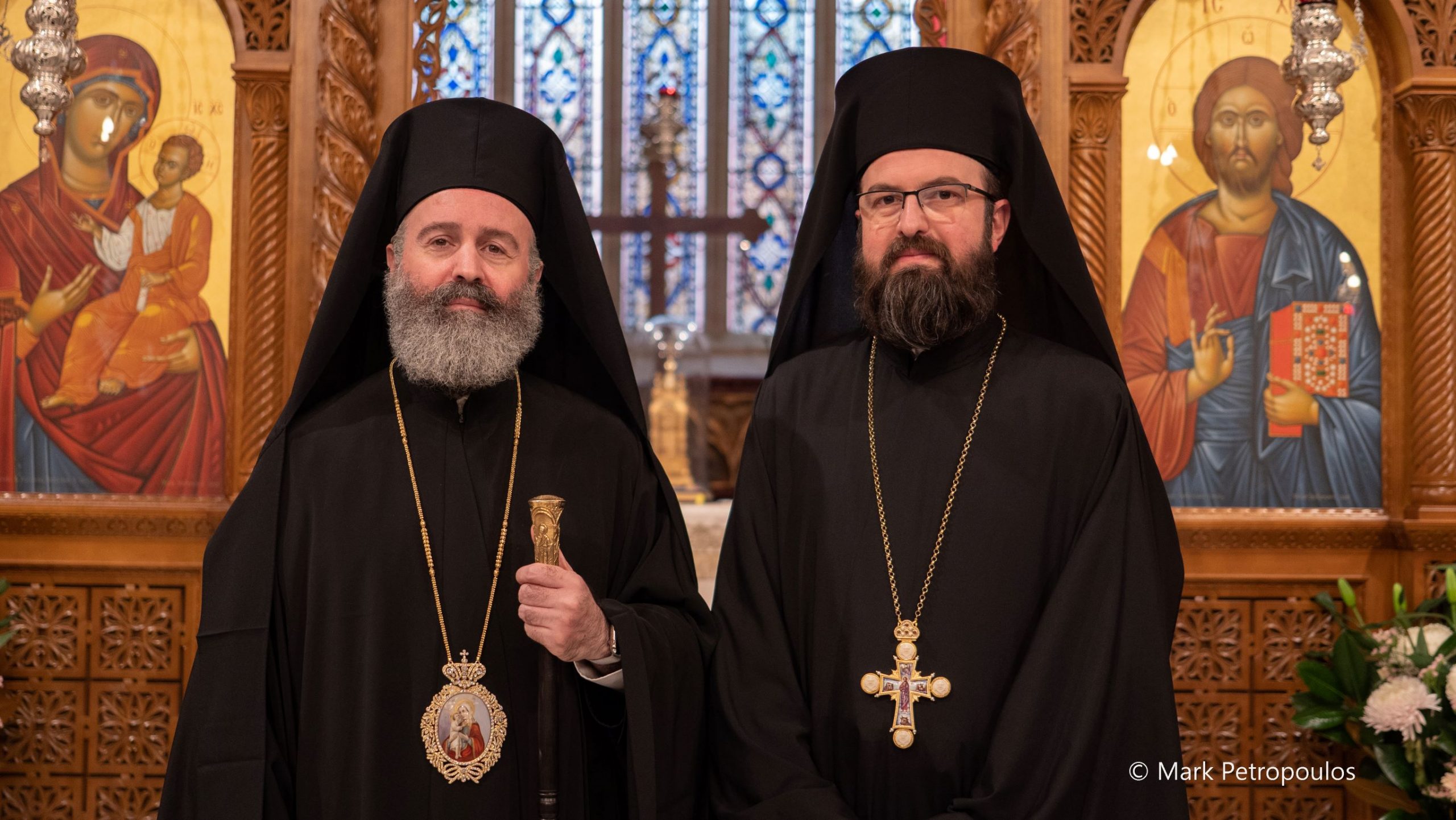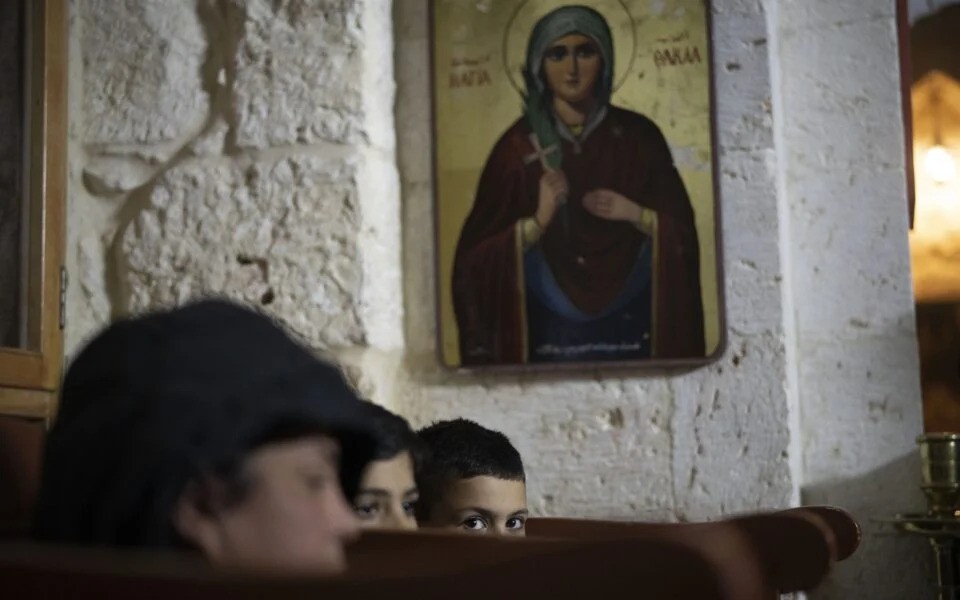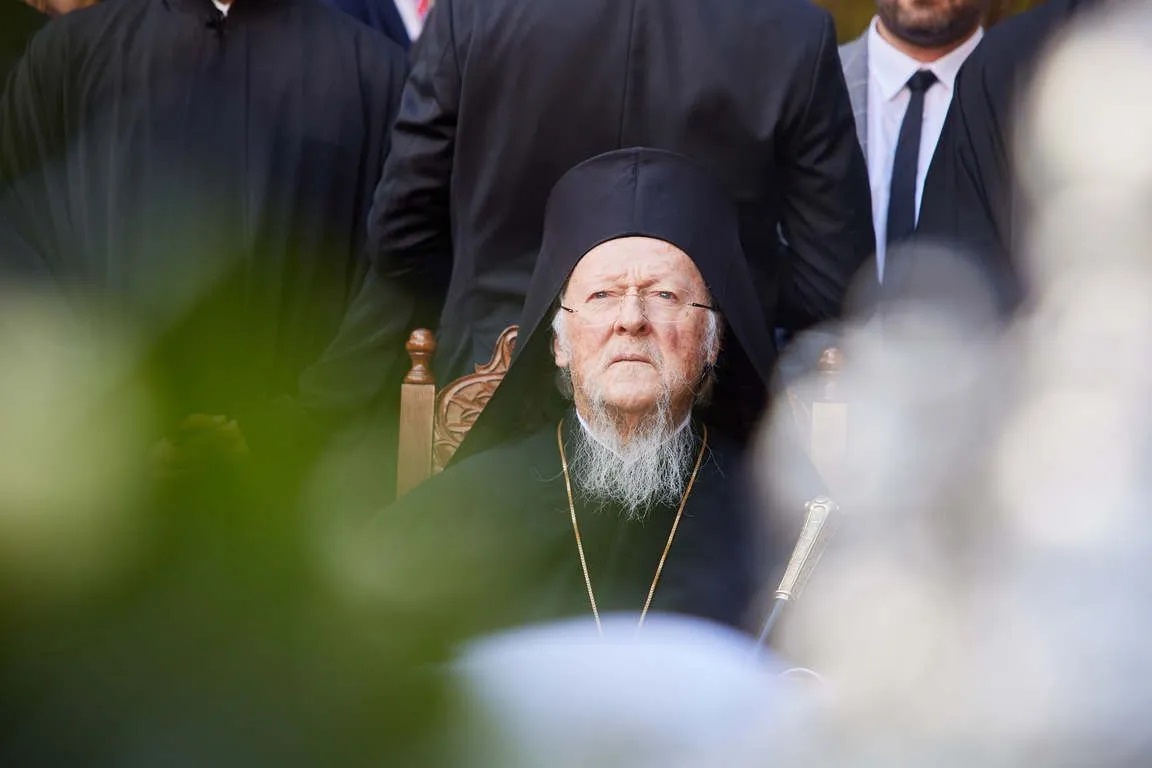The feast of All Saints at the Patriarchate of Jerusalem


On Sunday, June 19, 2022, the last Sunday of the Pentecostarion period was celebrated by the Patriarchate of Jerusalem as the Sunday of All Saints, namely of all the Holy Patriarchs of the Old Testament, Prophets, Apostles, Martyrs, Confessors, Preachers, Evangelists, Ascetics of the fruit of the Grace and the power of the Holy Spirit, which was sent down on the day of the Holy Pentecost.
Great Vespers on Saturday afternoon and the Divine Liturgy on Sunday morning were officiated by Metropolitan Isychios of Kapitolias, with the co-celebration of the Archimandrites Klaudios and Ieronymos, Priest Nectarios and Hierodeacon Eulogios. The chanting was delivered by the Typikon keeper of the Monastic Church of Saints Constantine and Helen Archimandrite Alexios, and Hierodeacon Dositheos in Greek and by Rimon Kamar in Arabic. The services were attended by a noble congregation of nuns and laity from Greece, Russia, and Romania, and the Consul General of Greece in Jerusalem Evangelos Vlioras.
During the Divine Liturgy, the Patriarch of Jerusalem and His entourage visited the Monastery for veneration.
His Eminence delivered a sermon to the congregation which follows below:
“All Saints’ Day closes the mobile cycle of festivities that began on the Sunday of the Publican and the Pharisee. In the contrite Triodion and in the joyful Pentecostarion, the Church presented to us all the work of the divine Providence, centred on the great feast of Easter. We saw the fall of the firstborn and the resurrection of our generation through the resurrection of Christ. We greeted the coming of the Comforter to the world and we celebrated the birth of the new people of God, the inauguration and the outpouring of the Holy Spirit “on all flesh”. Today’s feast is in close connection with the feast of Pentecost, the seal and the end of the great festive period. It comes as proof of the work of the church of the energy of the Holy Spirit in the world. Because it shows us the fruits and the sowing of that harvest of the white countries that the Apostles were sent to reap. And as Nikiforos Xanthopoulos observes very nicely in the synaxarion of the day, the fathers instituted this feast after the descent of the Holy Spirit, to show that the presence of the Holy Spirit through the Apostles succeeded in sanctifying and rendering wise the people who formed the first Church and restoring people to the place of the angels through Jesus Christ either by offering their martyrdom or by their virtuous state and conduct. And a supernatural work is done. God descends, the Spirit and the made of earth man raises. The Word of God raises the deified flesh and attracts with it those who want to do works of conciliation with God. Those who were alienated from God before, are united with God and become His friends. The nations offer their beginning, the All Saints.
But also, a second reason caused the establishment of this collective feast. Many Saints are known and honored with the feasts celebrated by the Church. The Holy Spirit also dwelled and sanctified many others. However, they remained unknown and invisible. Therefore, the Church honours its unknown saints today, those “who lived according to the teachings of Christ in India and Egypt and Arabia and Mesopotamia and Phrygia and over the Black Sea; moreover, those in Western Europe, up to the British Isles or to put it more simply in the east and in the west”.
However, initially, this feast did not have such a wide content. It was only a feast for all the martyrs. Already in the 4th century, we have a sermon of St. Chrysostom for this feast and the Typicon of Saint Sophia in Constantinople during the 10th century provides for a Gathering and a feast in the great Church and in the Church of the Holy Martyrs which was located near the Church of the Holy Apostles. The feast is entitled “All Saints” but the synaxarion of the day determines that we commemorate the Saints and the victorious Martyrs throughout the universe who martyred at various times for the name of our great God and Saviour Jesus Christ. If the information of Xanthopoulos is precise, the feast of All Saints was established during the reign of Leo the Wise when he built a Church and wanted it to be honoured by the name of his wife Theophanous, who “pleased God greatly”. He was advised, nevertheless, that it would not be wise to dedicate a Church to a woman, however holy, that died a while ago and the time has not yet given her the “honest and venerable”. The King was convinced and assigned the Church to the honour of “the Saints all over the earth saying… if Theophano is a Saint she will be counted with all of them”.
Regardless of the origin of the new feast with the general content, not only of the martyrs but also of all the Saints its expansion was very successful. Martyrs of Christ are not only those who shed their blood for the faith of Christ and thus gave the seal of faith and their testimony. Martyrs are all those who fought in the struggle of the Christian life and patiently bore the cross of Christ in this world. Those who martyred for Christ the daily martyrdom of conscience; the confessors who confessed the good confession before “nations and Kings”; Hierarchs who were God-pleasing shepherds of the flock of Christ and supported the right faith. The righteous and the ascetics who crucified the flesh along with the passions and desires; the people of the world who lived in the land of temptations and trials, but lived in a state as if they were already in heaven. And with them, the righteous prophets, the righteous, and the forefathers of the Old Testament who lived by law and “became martyrs by faith”, waiting for the Promise; especially the Holiest of the Holy, the Blessed Virgin, and mother of Christ the Theotokos Mary.
Through the present feast, we honor and highlight the Saints’ virtuous manner of living as an example, entreating them to intercede for us to God, Whose grace and infinite mercy may be with all of us. Amen”.
The Episcopal Entourage and the congregation were offered a generous reception by the renovator of the Church of the Monastery, reverend Abbess Seraphima.
























Source: Patriarchate of Jerusalem




